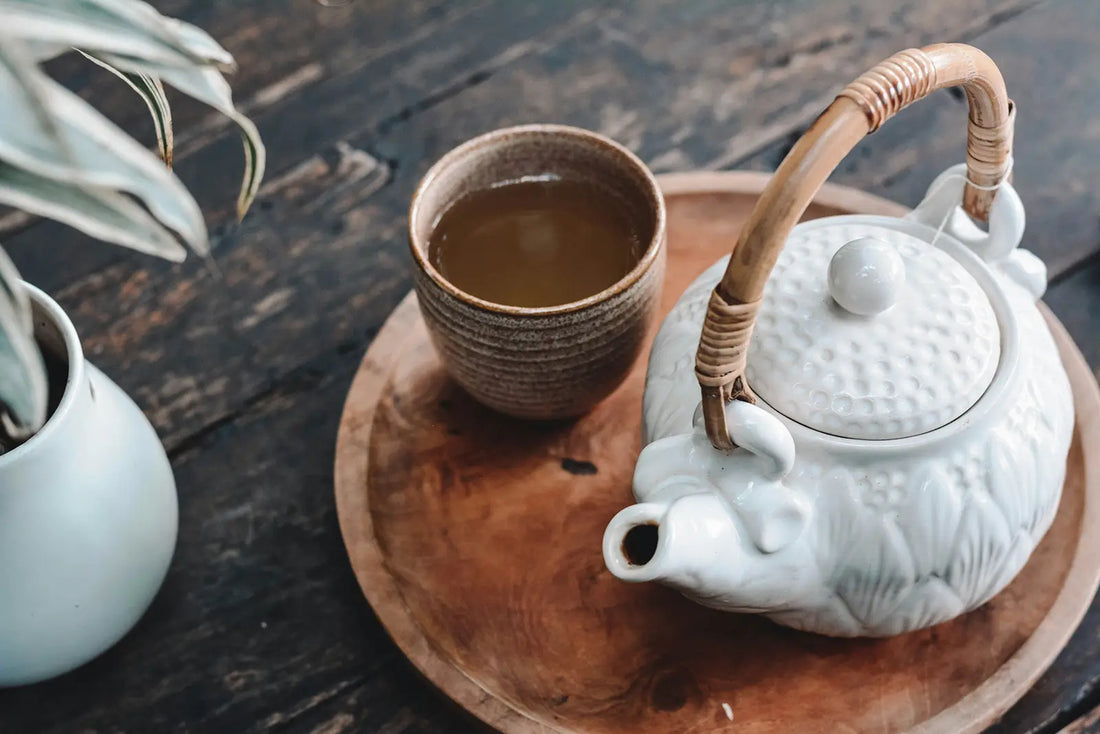
Is Tea Good for A Hangover? Find the best teas to help with you hangover
Share
Hangovers can be a real buzzkill, leaving you feeling sluggish, nauseous, and downright miserable. Whether it's a wild night out with friends or a few too many glasses of wine at dinner, we've all been there. Thankfully, there's a natural remedy that can help alleviate those dreaded hangover symptoms: tea.
Hangovers and their Symptoms
Before diving into the world of tea remedies, let's first understand what causes hangovers and the common symptoms associated with them. A hangover occurs after consuming alcohol in excessive amounts, leading to dehydration, inflammation, and a variety of unpleasant symptoms such as headaches, fatigue, nausea, and sensitivity to light and sound.
The Importance of Hydration for Hangovers
Hydration is key when it comes to combating hangovers. Alcohol is a diuretic, meaning it increases urine production and depletes the body of essential fluids and electrolytes. Replenishing these lost fluids is crucial for alleviating hangover symptoms and restoring balance to the body.
Can Tea Alleviate Hangover Symptoms?
Tea, particularly herbal varieties, can be a soothing and effective remedy for hangovers. Not only does it provide much-needed hydration, but certain types of tea also offer additional benefits that can help ease discomfort and promote recovery.
What are the best types of Tea for Hangovers
There are several types of tea that are particularly well-suited for combating hangover symptoms. Green tea, ginger tea, peppermint tea, and chamomile tea are among the most popular choices, each offering unique properties that can help alleviate various aspects of a hangover.
Benefits of Green Tea for Hangovers
Green tea is renowned for its antioxidant properties, which can help reduce inflammation and oxidative stress caused by alcohol consumption. Additionally, green tea contains caffeine, which can provide a gentle energy boost to combat hangover fatigue.
Exploring Ginger Tea as a Remedy for Hangovers
Ginger tea is another excellent option for soothing hangover symptoms. Ginger is well-known for its anti-inflammatory properties, which can help reduce nausea and ease digestive discomfort. Additionally, ginger tea has a warming effect that can be particularly comforting when you're feeling under the weather.
Peppermint Tea: A Refreshing Option for Hangovers
Peppermint tea is known for its refreshing taste and calming effects on the digestive system. It can help relieve nausea, bloating, and indigestion, making it a popular choice for soothing hangover-related stomach issues.
Chamomile Tea and Its Role in Easing Hangover Symptoms
Chamomile tea is prized for its relaxing and calming effects, making it an ideal choice for reducing stress and promoting restful sleep after a night of drinking. Additionally, chamomile tea is gentle on the stomach, making it suitable for those experiencing digestive upset due to alcohol consumption.
Tips for Preparing and Consuming Tea for Hangovers
When preparing tea for hangovers, it's important to use high-quality ingredients and optimal brewing methods to maximize its effectiveness. Adding a squeeze of lemon or a drizzle of honey can enhance the flavor of your tea while providing additional health benefits.
Other Natural Remedies to Complement Tea for Hangovers
In addition to tea, there are several other natural remedies that can help alleviate hangover symptoms. Coconut water is rich in electrolytes, making it a great choice for rehydrating the body. Similarly, electrolyte-rich beverages such as sports drinks can help replenish lost fluids and minerals.
Precautions and Considerations When Using Tea for Hangovers
While tea can be a helpful remedy for hangovers, it's important to use it responsibly and be aware of any potential interactions with medications or pre-existing health conditions. If you're unsure whether tea is safe for you, consult with a healthcare professional before using it as a hangover remedy.
About the Author: Nick Nowak is a Doctor of Pharmacy (PharmD) and Board Certified Pharmacotherapy Specialist (BCPS. Nick studied at the University of Health Sciences and Pharmacy in St. Louis, and led clinical inpatient teams for the United States Air Force.
Please note: Intended for educational and informative purposes only and not intended to serve as medical or professional advice. For medical attention or advice you should consult your physician or other health care professional.
